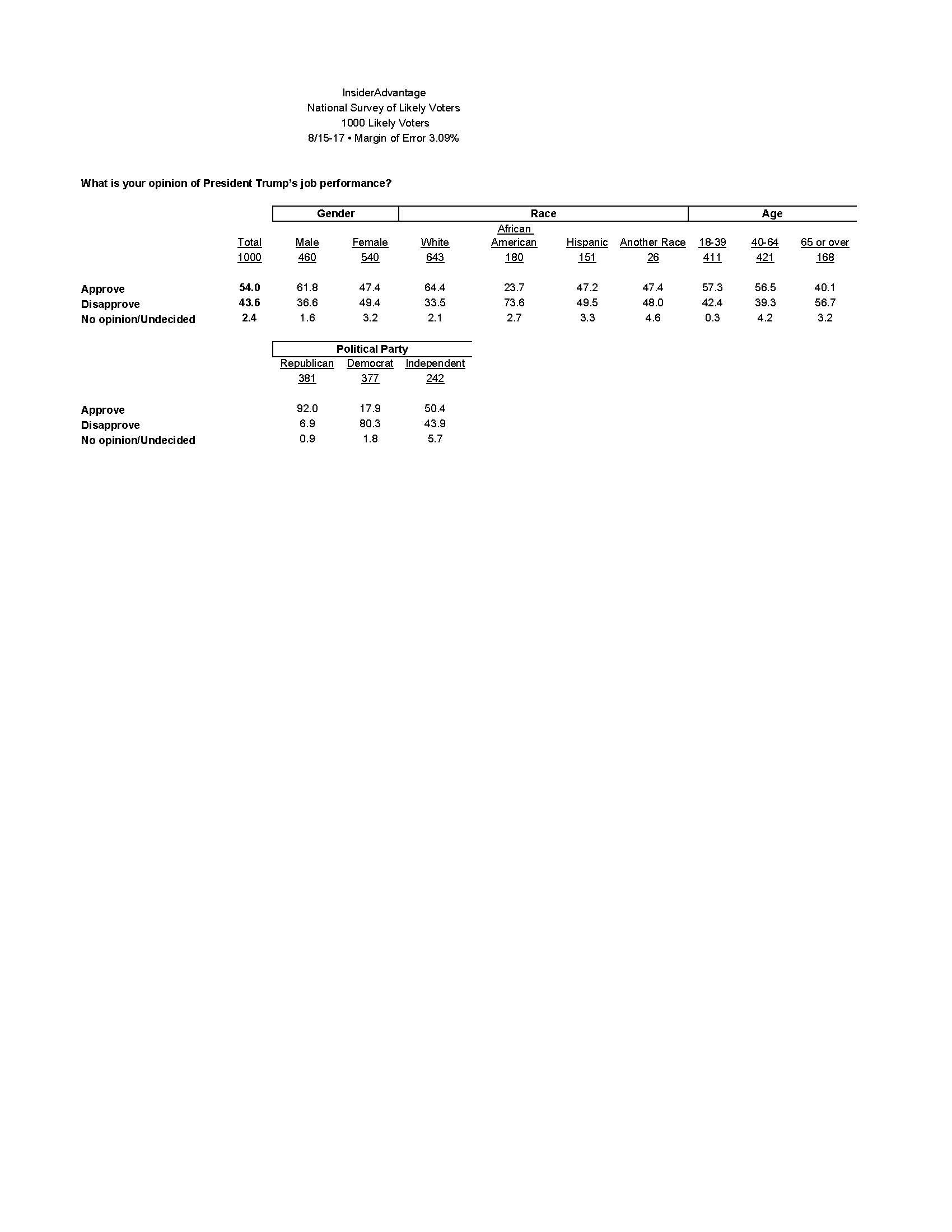
(NOTE: The above chart is the “AI on IA” summary of post-debate social media for the early portion of the immediate day after the GOP presidential debate. Search past posts to examine other examples of AI on IA).
Those who followed InsiderAdvantageAI and the real time data posts we served up during Wednesday’s GOP presidential debate might not be shocked to learn that the AI data analysis provided an accurate advance look at the traditional InsiderAdvantage national survey results revealed on Friday. Our live “AI on IA” reports during Wednesday”s debate and after the contest established some clear trends. Vivek Ramaswamy led the social media comments from around the nation at for most of the debate. Ron DeSantis was closely behind him in social media posts. When Nikki Haley focused her comments on foreign policy directly at Ramaswamy, her social media comments rose swiftly and kept her in the contest with Ramaswamy and DeSantis.
So it came as no shock (or maybe for us a relief) to see the results of our InsiderAdvantage post-debate national survey conducted the day after the contest indicating that of likely GOP caucus/primary voters who watched the debate, Ramaswamy was deemed the winner by 22% of the respondents with Nikki Haley and her late debate surge coming in second at 21% and Ron DeSantis showing up in third at 16%. None of the other candidates broke close to the double digits in the poll results. While our IA/AI showed Mike Pence and Chris Christie receiving some significant social media attention at points during the debate, much of that data was negative, which explains the anemic 2% the two received in the “who won the debate?” portion of our national survey.
At least other post-debate surveys also showed Ramaswamy the winner, while a Washington Post survey indicated a win for DeSantis. InsiderAdvantage Chairman Matt Towery explains why the polls may have differed on who won the debate: “First, I want to stress that I am not claiming that one methodology is a more accurate one than others. The difference in some surveys and ours is that some rely on panels that have been selected, to watch and ‘score’ the debate performances. This means that the respondents are focused on the event and definitely come to a conclusion. Our poll is made of respondents who are randomly surveyed and indicate that they are likely to vote in their respective Republican caucus or primary. Hence the twenty-three percent in the IA poll who said they did not watch the debate. That makes sense given the fact that the number of likely voters nationwide greatly outstrips even the very successful ratings for the Fox News event. The respondents, when using random sampling, are generally more likely to have a more casual interest in politics and political events than those who agree to be part of a panel. I’m guessing the Post survey is probably a better measure of who won if you are looking for an opinion from those who really focused in on the contest. The Insider poll might be more reflective of the general public, many of whom either did not watch the contest or might have been casually watching it. Regardless, we were pleased to see the general correlation between the interpreted data from our InsiderAdvantage AI efforts Wednesday night, and the actual results of the survey of who respondents believe won the debate.



